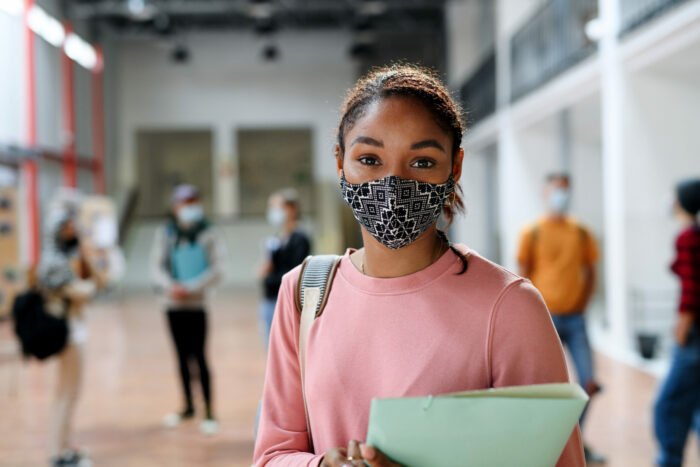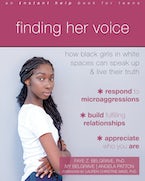By Angela Patton, coauthor of Finding Her Voice
For those of us involved in education—whether as students, parents, or teachers—the end of the summer is an exciting time of year. Returning back to school holds the promise of new beginnings—new clothes, new teachers, and new responsibilities. Back to school can also mean the comfort of the familiar—friends, routines, and sleep habits. The contrast between fresh beginnings and familiarity can also cause anxiety for some. The backdrop of returning to ”normal” this school year is cluttered by memories of virtual learning, public disputes over mask mandates, debates about critical race theory, and the financial, social—and for some—physical trauma of COVID-19. But there are ways to dull down this background and thrive this 2021 school year. Here are three tips:
1. Lean into the routines that work for you and your family. Set bedtime, pack lunch the night before, establish a time and space for homework, limit screen time—whatever helps your day go smoothly.
2. Have fun. We have had a lot of restrictions lately, but there are several things you can do safely —dance with your family, hike somewhere new, have friends over (with safety measures of course).
3. Create a plan for challenges. Wearing a mask and social distancing are proactive behaviors to manage health risks. It is also important to take proactive steps to manage the emotional and social challenges. One proactive step is to identify someone you can talk to no matter what the situation.
If you are a Black student or a student of color, returning to school means that you face additional challenges that your White peers do not face. Returning to a ”normal” school environment means recurring microaggressions, biased teaching, and systemic racism. But there are ways for you to counter this narrative and thrive this 2021 school year.
Finding Our Voice was written to help counter some of the challenges Black adolescent girls face in predominantly White settings. It was written to help Black girls navigate challenges unique to them. This book discusses systems of oppression, cultural identity, lack of representation, stereotypes, and self-awareness in an accessible manner. Moreover, it provides guidance on how and what to practice to increase confidence in addressing challenges that uniquely affect Black girls.
No one can say with certainty how this school year will unfold. However, it is my sincere hope that you can embrace the new, hold on to the old things that work for you, and let go of the old that does not.
Angela Patton is CEO of Girls For A Change (GFAC). She was recognized in Richmond, VA’s Style Weekly in 2015 as a Top “40 under 40,” and listed in a national coalition of girl-serving groups that identified GFAC as one of five programs to note. In 2016, President Obama recognized Patton as a White House Champion of Change for after-school programming for marginalized girls of color. In 2018, GFAC was recognized as Nonprofit Partner of the Year, and in 2019, the Richmond Times-Dispatch nominated Patton for Person of the Year. Patton was appointed to the Virginia STEM Commission, and selected to participate in the Omega Women Residency Leadership program for women leading nonprofits for women and girls. Patton is available for speaking engagements, trainings, panels, and consulting services on Black girls and other girls of color.



 2024 Peace Playbook: 3 Tactics to Avoid Clashes with Your Partner
2024 Peace Playbook: 3 Tactics to Avoid Clashes with Your Partner